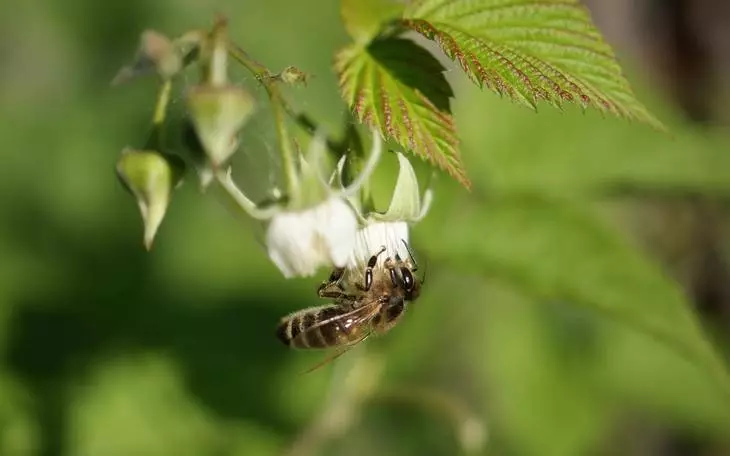
According to a new study conducted by scientists from the University of Bristol and published in Journal of Ecology, household plots today are the largest source of food for insect pollinators, including bees and OS, in cities and towns.
The study for the first time was measured, how many nectar is produced in urban areas, where residential gardens constitute the overwhelming majority - on average, about 85 percent of the territory occupies.
The results showed that in three gardens daily formed an average tea spoon of natural ambrosia, a unique sugar-rich liquid sugar contained in the flowers that pollinators drink to obtain energy.
Although the teaspoon may seem small to us, translated from the bee for the human ratio it will be a ton of ambrosia. Thus, one teaspoon is enough to "fill the energy of thousands of flying bees.
Ecologist Nicholas Tyu, leading author, said: "Although the number and diversity of nectar used to be measured in rural areas, it was not conducted for urban areas of such analysis. We expected private gardens to be a rich source of nectar, but surprised by the scale of production. Our results emphasize the key role that summer residents play in supporting pollinators and biodiversity promotion. "
In this study, conducted in collaboration with the Universities of Edinburgh and the Round and the Royal Horticultural Society, the production of nectar in four major cities of Great Britain was studied: Bristol, Edinburgh, Leeds and Finnish. Almost a third (29 percent) lands in urban areas occupied household plots, which is six times more square parks.
Nectar production was measured by almost 200 plant species by extracting nectar from more than 3,000 individual colors. The sugar concentration in nectar was determined using a refractometer, a device that measures, as far as the light is refracted when passing through the solution.
"We found that the reserve of nectar in urban landscapes is more diverse, in other words, it comes from more plant species than in agricultural land and reserves, and this is the merit of private individuals," the participant of Nicholas Tyu commented.
"The study shows a huge role that gardeners play in the preservation of pollinators, because without gardens would be much less food for pollinators, including for bees, OS, butterflies, moths, flies and beetles. It is vital to keep private gardens, and their owners provide recommendations to make areas convenient for pollinators. This includes landing rich in color nectar, less frequently cut lawn and avoid spraying pesticides that can harm pollinkers. It should also avoid the coating of the garden with paving, flooring or artificial lawn, "explained.
(Source: www.eurekalert.org).
